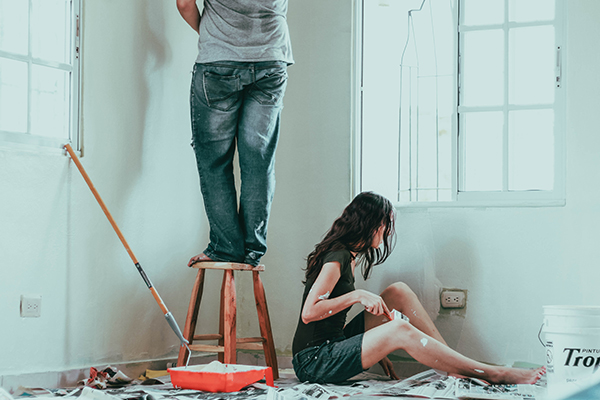You may well have read how the surge in construction projects and renovations in the past year has led to rising material costs and shortages of items ranging from timber and concrete to taps and roof tiles. This has meant increased lead times for builders and contractors to source their materials. But don’t let this put you off planning your home improvement projects.
By proceeding now with the all-important planning and design stage, you’ll have a clear plan of action to help you manage your budget and to share with your builder or contractor. By giving them plenty of time to order their materials in advance, you’ll ensure everything your tradespeople need will be in place and help towards a more cost-efficient outcome.
Here are five ways to help you save costs on home improvements:
1. Hire an architectural design expert
An architectural design expert can assess all your needs and offer cost-effective options and solutions to fit your budget and lifestyle needs. Do you need an extension or is it possible to optimise your existing space for less money? Can you achieve that new bathroom or kitchen without having the extra cost of moving the plumbing? What clever storage solutions can make a smaller room feel bigger? An experienced design expert can help.
2. Have a professionally drawn design
Before starting any renovation project, however small, you need to know exactly what you want. Professionally produced working drawings, including floorplans and any structural changes, help you to think about every detail of your project. From the drainage and plumbing to plug sockets and light switches, an accurate plan makes sure everything will be where you want it to be and avoid costly changes once work has started.

3. Keep track of your budget
Detailed working drawings enable your builder or contractor to provide you with more accurate quotes and to establish a realistic timeline for your project. A detailed plan also captures each element of a project, enabling you to breakdown the cost of each item. By knowing exactly where your money is going, you can identify where to adjust your budget to balance costs. In the kitchen, for example, you might choose less expensive units but higher quality work surfaces to achieve your desired look.
4. Decide what you can do yourself
Knowing every element of your project, and having had detailed discussions with your builder or contractor, means you can identify those areas you feel comfortable doing yourself. It could be decorating, reupholstering chairs, sofas and cushions or shopping around to source your own fixtures, doorknobs and cabinets. And hang on to old items in case your tradespeople can use something for a job, so saving you the cost of materials.
5. Stick to your plan
Knowing all your options before the start of a project and staying organised are key to avoiding spending money unnecessarily. Expert guidance can help you to explore every possibility and then finalise your requirements. Once you have an accurately drawn plan containing all that you and your builder or contractor will need, stick with it during the project. Changing your mind or discovering something that has been missed during the work will increase costs and could prove expensive.
Planning is vital to the success of any endeavour. KT Architectural has the experience and expertise to offer guidance and professionally drawn plans that consider every detail of a project and helps you realise your improvements in the most cost-effective way.
Contact
Chat with Kevin Todd to discuss your ideas on 07973 227925 or email: kt@kevintoddarchitectural.co.uk
Covid-19 Policy
We are able to handle your design needs while strictly following the current Covid-19 rules. Our priority is the health and safety of our clients and our team in each job we undertake. You can read our Covid-19 policy here: Covid Policy

Recent Comments